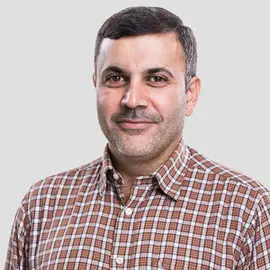Novel approaches for investigating local corrosion and mechanical degradation of multiphasic alloys (LoCoMecha) (LoCoMecha)
Beschreibung
ZHAW has two main tasks in this project:
Numerical prediction of the effect of stress corrosive crack in Ti-alloy medical implants - Stress corrosive crack in Ti-alloy
Novel approaches for investigating local corrosion and mechanical degradation of multiphasic alloys. The aim is to improve the properties of Ti-alloy materials (i.i. long term mechanical stability and biocompatibility), which serve as medical implants. Numerical simulations are conducted to improve the understanding of the interaction between corrosion and crack propagation. This is envisaged to investigate the resulting impact on the Ti-alloy implant due to the exposure to chemical and mechanical effects in the biological environment of the human body.
Novel approaches for investigating local corrosion and mechanical degradation of multiphasic alloys
The aim is to improve the properties of Ti-alloy materials (i.e. long term stability, mechanical strength and biocompatibility), which serve as medical implants. Each partner contributes with his specific and complementary methodological know how and excellency. ZHAW has two workpackages dealing with a) Quantitative Microstructure Analysis and Digital Microstructure Design b) Electrochemical and Mechanical modeling (stress corrosion cracking) Further workpackages; EPFL; additive manufacturing of Ti alloys by selective laser melting, metallurgical characterization. Institut de la Corrosion, Brest, F; Global electrochemical and mechanical testing. Sorbonne Université, LRS, Paris, F; local electrochemical characterization and modelling.
Eckdaten
Projektleitung
Dr. Lorenz Holzer, Dr. Yasser Safa, Prof. Vincent Vivier
Projektteam
Prof. Roland Logé, Dr. Philip Marmet, Dr. Michel Prestat
Projektpartner
Laboratoire de Réactivité de Surface; French corrosion institute; Ecole polytechnique fédérale de Lausanne EPFL / Thermomechanical Metallurgy Laboratory
Projektstatus
laufend, gestartet 01/2023
Institut/Zentrum
Institute of Computational Physics (ICP)
Drittmittelgeber
Weave/Lead Agency / Projekt Nr. 213161; Agence nationale de la recherche (ANR)
Projektvolumen
1'200'000 CHF
Publikationen
-
Fatigue-corrosion behaviour of Ti6Al4V alloys in H2O2-containing physiological solution
2024 Vucko, Flavien; Ringot, Geoffrey; Marmet, Philip; Safa, Yasser; Holzer, Lorenz; Banait, Shruti; Perrin, Laura; Logé, Roland; Prestat, Michel
-
H2O2-driven corrosion of Ti6Al4V investigated by electrochemical impedance spectroscopy and quantitative microstructure analysis
2024 Prestat, Michel; Marmet, Philip; Safa, Yasser; Holzer, Lorenz; Banait, Shruti; Perrin, Laura; Logé, Roland; Dumouchel, Maxime; Vucko, Flavien
-
In vitro corrosion and stress corrosion cracking of Ti6Al4V alloy in H2O2-containing physiological solutions
2023 Vucko, Flavio; Ringot, Geoffrey; Marmet, Philip; Holzer, Lorenz; Dumouchel, Maxime; Prestat, Michel
